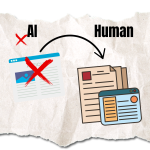If you’ve ever wondered “What’s in his stack?” — I’ve shared it all in one place.
👉 See my best picks
Artificial Intelligence (AI) has become a powerful tool in almost every field, from automating tasks to helping create content. Writing articles, in particular, has been significantly impacted by AI advancements, with tools like ChatGPT making article creation faster and more accessible than ever. However, seasoned readers and editors can often spot AI-generated content due to specific phrases that frequently appear. In this guide, we’ll look at 12 common words and phrases used by AI that can make your articles look robotic and how to avoid them.
Why AI-Written Content Can Seem Obvious
AI tools often use patterns and structures they’ve learned from massive datasets, making certain words and phrases overly common. These phrases may come across as repetitive or cliché, often giving the article a robotic feel that trained editors can easily detect.
By avoiding these overused phrases, you can make your AI-assisted writing appear more authentic, giving it a more human touch.
These AI Words expose your ChatGPT articles
1. Unlock / Unleash
AI tends to overuse words like “unlock” or “unleash,” especially in titles and introductory sentences.
- Why it’s obvious: These words often suggest a grand reveal or secret, which AI tools rely on to engage readers.
- Better alternatives: Use simpler language like “explore,” “discover,” or “reveal” to make your message sound more authentic.
2. In the Age of…
This phrase is commonly found in AI-generated articles, especially in introductory paragraphs.
- Why it’s obvious: It sets up the topic in an overly formal way that AI-generated content often uses.
- Better alternatives: Substitute with phrases like “in today’s world” or simply skip it altogether and get straight to the point.
3. Embrace
“Embrace” is a go-to word for AI, often used to encourage readers to accept a concept or trend.
- Why it’s obvious: Overusing “embrace” can make content sound too dramatic or impersonal.
- Better alternatives: Try words like “include,” “accept,” or “integrate.”
4. Foster
“Foster” often appears when the AI is discussing encouraging or supporting something.
- Why it’s obvious: The term sounds forced, especially when used frequently.
- Better alternatives: Consider using “encourage,” “support,” or “improve” for a more human tone.
5. Delve Into
Another frequent introductory phrase in AI-written articles, “delve into,” appears to set the stage for an in-depth exploration.
- Why it’s obvious: It’s a formal expression that can make the content feel overly scripted.
- Better alternatives: Use “explore,” “dive into,” or simply “look at.”
6. Revolution / Revolutionary
AI loves to refer to innovations as “revolutionary,” especially when discussing technology or new concepts.
- Why it’s obvious: This word is often too dramatic for general content and tends to sound artificial.
- Better alternatives: Use “remarkable,” “noteworthy,” or “impressive.”
7. When It Comes to…
This phrase appears frequently in AI-generated content, often as a segue into a new topic.
- Why it’s obvious: It sounds overly formal and repetitive.
- Better alternatives: Replace it with “regarding,” “about,” or “in terms of.”
8. Empower
AI loves using the word “empower” to add weight to statements about personal growth or success.
- Why it’s obvious: It’s a word that stands out as a buzzword in many AI-written pieces.
- Better alternatives: Try “enable,” “equip,” or “strengthen.”
9. The Tapestry of…
AI occasionally uses this phrase to describe a complex or diverse concept, like “the tapestry of success.”
- Why it’s obvious: It sounds outdated and overly poetic.
- Better alternatives: Use phrases like “range of,” “collection of,” or simply list examples instead.
10. In Our Modern Life
A phrase commonly used by AI when discussing contemporary topics, it adds unnecessary formality.
- Why it’s obvious: It feels out of place in casual writing.
- Better alternatives: Consider using “today” or “in the modern world.”
11. Whether You’re…
AI often uses “whether you’re” statements to cover multiple reader types.
- Why it’s obvious: It’s overly broad and can feel formulaic.
- Better alternatives: Be more specific or just eliminate this phrase for a clearer sentence structure.
12. Transformation / Transformative
AI tools frequently use these words when describing progress or change.
- Why it’s obvious: It can feel like an overstatement, especially in more casual articles.
- Better alternatives: Opt for simpler words like “change,” “growth,” or “shift.”
Tips for Making AI-Generated Content Feel Human
- Vary Sentence Structure: AI can sometimes fall into repetitive patterns. Try switching up sentence lengths and styles.
- Use Personal Stories: Adding anecdotes can make your article feel more genuine and relatable.
- Avoid Overly Formal Language: Readers often prefer a more conversational tone unless the topic demands formality.
- Include Transitional Phrases: Natural transitions like “another point to consider” or “on the other hand” add flow and readability.
- Use Spinrewriter :The best rewriting tool which humanizes your entire article with a click of a button !
Final Thoughts
By being mindful of these common AI phrases and making conscious word choices, you can ensure that your content feels human-written, relatable, and engaging. AI is a fantastic tool, but ultimately, a human touch is often the key to effective communication. Happy writing!





